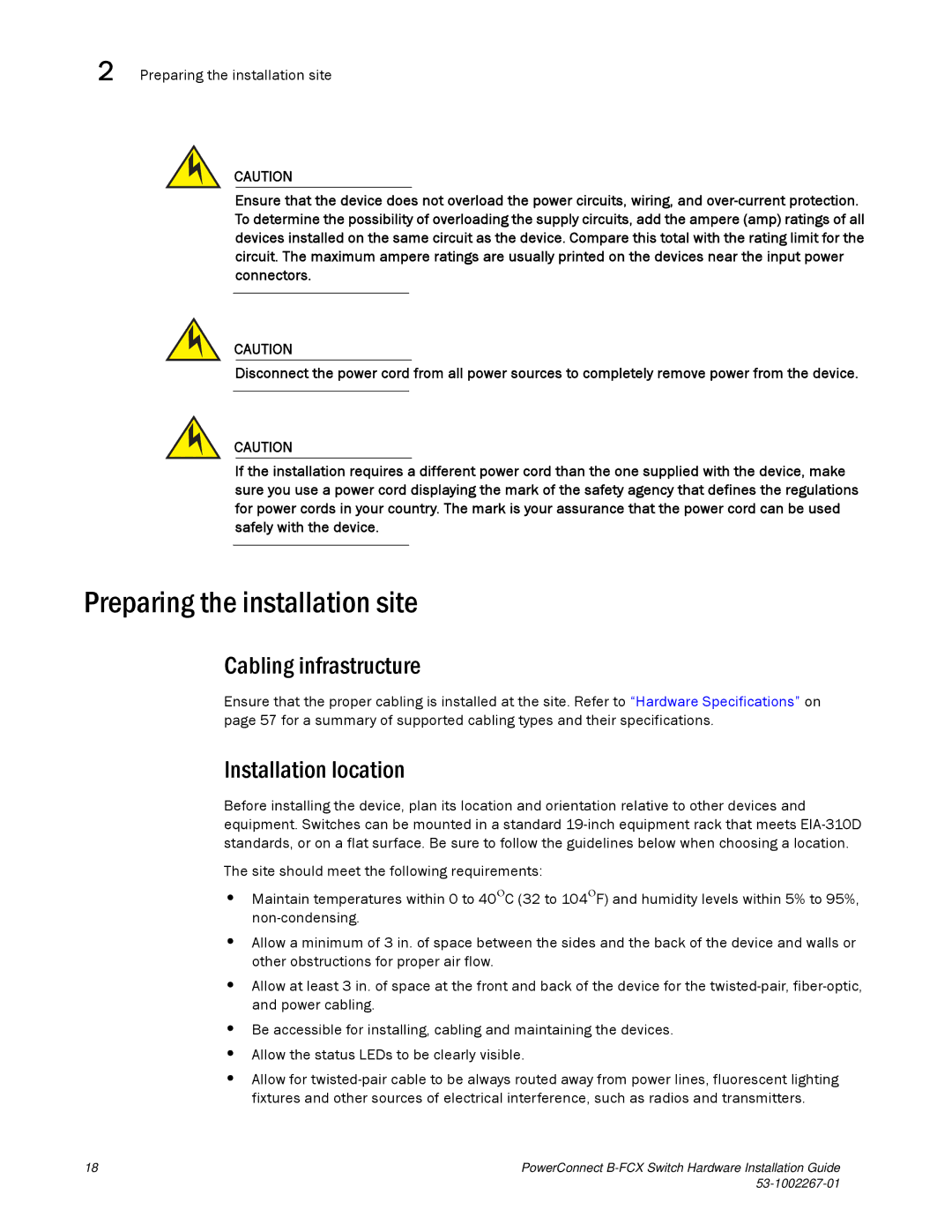
2 Preparing the installation site
CAUTION
Ensure that the device does not overload the power circuits, wiring, and
CAUTION
Disconnect the power cord from all power sources to completely remove power from the device.
CAUTION
If the installation requires a different power cord than the one supplied with the device, make sure you use a power cord displaying the mark of the safety agency that defines the regulations for power cords in your country. The mark is your assurance that the power cord can be used safely with the device.
Preparing the installation site
Cabling infrastructure
Ensure that the proper cabling is installed at the site. Refer to “Hardware Specifications” on page 57 for a summary of supported cabling types and their specifications.
Installation location
Before installing the device, plan its location and orientation relative to other devices and equipment. Switches can be mounted in a standard
The site should meet the following requirements:
•Maintain temperatures within 0 to 40οC (32 to 104οF) and humidity levels within 5% to 95%,
•Allow a minimum of 3 in. of space between the sides and the back of the device and walls or other obstructions for proper air flow.
•Allow at least 3 in. of space at the front and back of the device for the
•Be accessible for installing, cabling and maintaining the devices.
•Allow the status LEDs to be clearly visible.
•Allow for
18 | PowerConnect |
|
